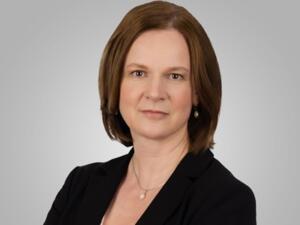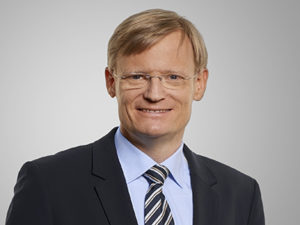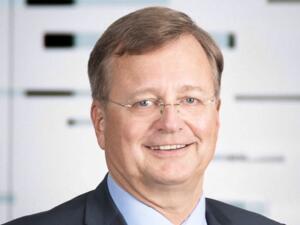G2/24: EBA brings skin-cleanser dispute to an end
The Enlarged Board of Appeal has ruled that a subsequently filed appeal cannot prolong an opposition against a European patent if the main appellant has previously withdrawn the appeal. This means a skin-cleanser patent owned by Foreo AB is valid. However, the decision comes too late for a parallel dispute at the UPC, as patent owner Foreo and German company Breuer had already settled.
26 September 2025 by Mathieu Klos
At the centre of the dispute over EP 2 941 163 are three skincare companies. On one side is Swedish patent holder Foreo AB, which primarily sells skincare and anti-ageing products. On the other are German skincare companies Breuer and Geske.
Breuer and Geske sought to prevent the European Patent Office from granting Foreo’s EP 163. Additionally, at the Unified Patent Court, Foreo has accused Breuer of infringing the patent since 2023. Foreo is also said to have filed a lawsuit against Geske in Sweden.
Yesterday, the Enlarged Board of Appeal made its final decision and concluded the opposition proceedings with its landmark decision G2/24. According to this ruling, Geske does not have the right to continue appeal proceedings against EP 163 following Breuer’s withdrawal its appeal against an Opposition Division decision.
Complicated opposition case
The Technical Board of Appeal’s referral to the Enlarged Board only came about because Geske — unlike Breuer — had not participated in the opposition proceedings from the outset. According to EPO documents, the Ulm-based company only attempted to join proceedings after Foreo issued a warning in 2022 for alleged patent infringement. Geske twice tried to intervene in Breuer’s opposition proceedings against EP 163. The Opposition Division rejected both attempts.

Carl Josefsson © Eva Kubinska
Meanwhile, the Opposition Division ruled on Breuer’s opposition and upheld EP 163 in limited form (case ID: T 1286/23 11-11-2024). Breuer initially appealed.
With Foreo and Geske now facing eachother in Swedish courts, Geske made a third attempt to participate in the EPO proceedings. By this time, the case had reached the Boards of Appeal. However, six months after Geske declared its intervention, Breuer withdrew its appeal. Despite this, Geske continued to demand that the Boards overturn the Opposition Division’s judgment and reject EP 163.
The BoA judges did not address this question directly. Instead, they considered whether proceedings may continue with a third party who intervened during appeal proceedings after the main opponent has withdrawn all appeals, and whether that party may acquire appellant status under Article 107 EPC. They referred these questions to the Enlarged Board.
Ruling favours Foreo
Yesterday, the Enlarged Board judges, led by BoA President Carl Josefsson, ruled in Foreo’s favour. They confirmed their previous decision G 3/04, concluding that appeal proceedings cannot continue with a third party who only intervened during the appeal stage after all appeals are withdrawn.
The Board noted that legal changes since G 3/04 could warrant reconsidering earlier conclusions. However, none of the relevant provisions — Articles 99(1), 105 and 107 EPC — had materially changed since G 3/04.
The Enlarged Board emphasised that only those who formally participated in proceedings before the administrative department that issued the impugned decision have appeal rights under Article 107 EPC. An adverse effect within the meaning of this provision exists if an administrative decision falls short of a party’s request or deviates from it without consent.
Regarding third-party intervention, the Enlarged Board stated this exceptional legal remedy inherently precludes extensive interpretation. An intervener who was not party to the administrative proceedings enters appeals at their current stage. Parties to appeal proceedings by right do not have independent legal status. The principle of party disposition, along with binding requests and prohibitions of ultra petita and reformatio in peius, limits procedural options for all involved in appeal proceedings, including intervening third parties.
Therefore, if all appeals in opposition proceedings are withdrawn, proceedings end on substantive issues for all parties and cannot continue with an appeal-stage intervener.
UPC case settled
The dispute between the skincare manufacturers appears largely resolved, as Foreo and Breuer have settled their UPC proceedings. UPC documents show Foreo sued Breuer at Munich’s local division for infringement of EP 163 in December 2023 (case ID: ACT_592082/2023). However, the court never ruled on the case.
In both UPC and EPO proceedings, Maiwald represented Breuer. The team included patent attorney Alexander Ortlieb and lawyers Heike Röder-Hitschke and Marco Stief.
- Heike Röder-Hitschke
- Marco Stief
- Thomas Prock
- Jürgen Klinghardt
Foreo relied on UK firm Marks & Clerk for the EPO proceedings, with patent attorneys Thomas Prock and Daniel Sizer leading. For the UPC action, Foreo chose a Taylor Wessing team led by Munich partner Dietrich Kamlah. He will soon leave the international firm to found boutique Pentarc with four other Taylor Wessing partners.
For the EPO proceedings, Geske worked with Eisenführ Speiser in Bremen and Hamburg. Patent attorneys Jürgen Klinghardt, Lars Birkenm and Jochen Umland advised Geske before the Enlarged Board.
JUVE Patent is not aware of any other ongoing disputes over skin cleansers.




